24 hours with the Samsung Galaxy Z Flip 3
Finally, a (comparatively) affordable foldable
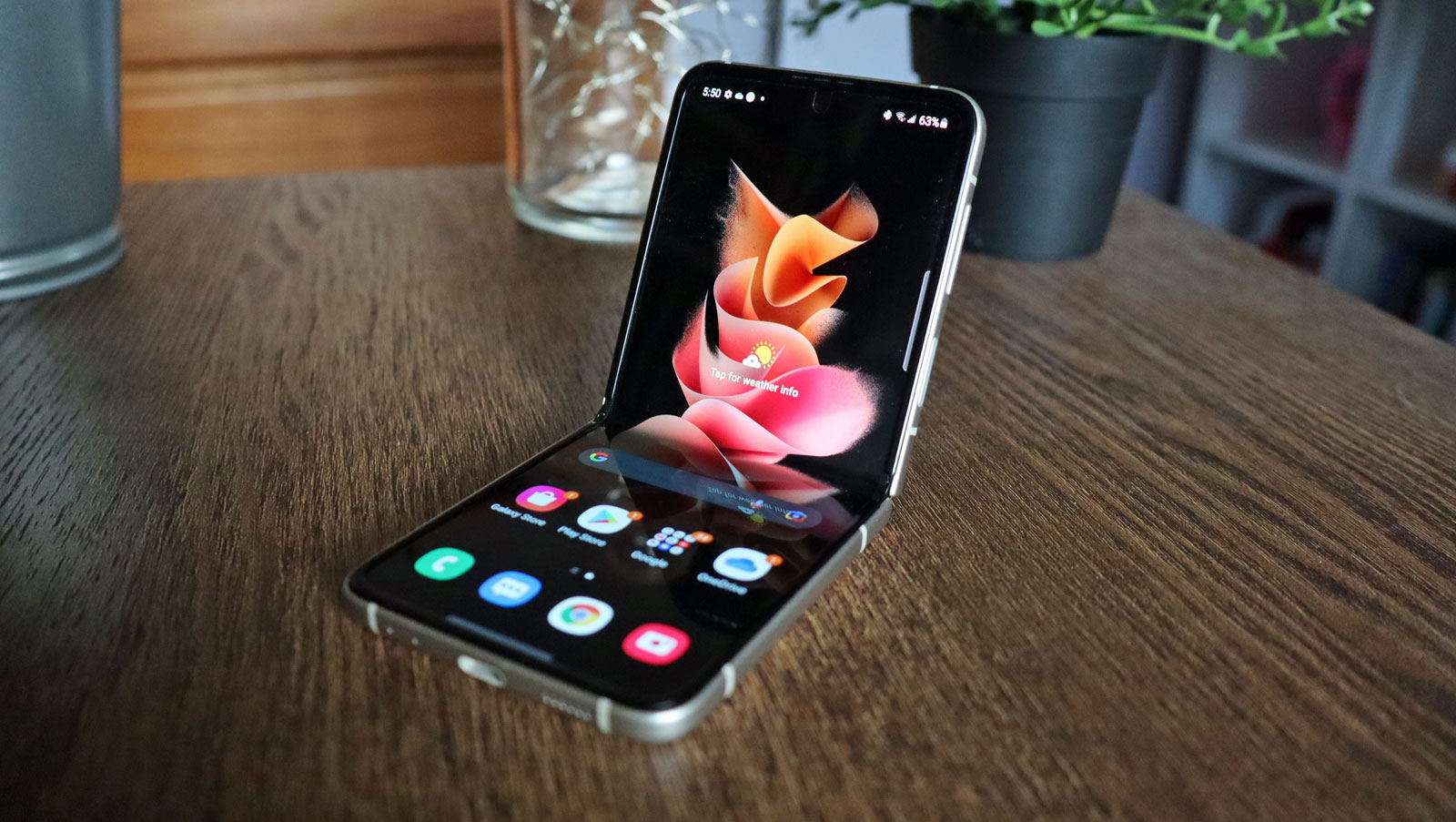
After a day using the Samsung Galaxy Z Flip 3, I’m in love. It’s the best clamshell foldable we’ve seen yet, and it’s affordable enough compared to other foldables to actually recommend to consumers.
Not everyone can afford the Z Flip 3’s $999 / £949 / AU$1,499 price tag, and it’s easy to imagine that if consumers are going to pay so much, they might want more functionality from a different (non-folding) phone – for the same price, you can get the Samsung Galaxy S21 Plus’ 30x ‘Space Zoom’ telephoto capability, or the iPhone 12 Pro’s processing power and iOS interface, or the Samsung Galaxy Note 20 Ultra’s stylus functionality.
Heck, if you go to our current hands-on of the Z Flip 3 written by my colleagues in the UK, you’ll hear the exact same thing: you’re better served paying the same price for more in a traditional ‘flat’ phone. Even TechRadar is of divided mind.
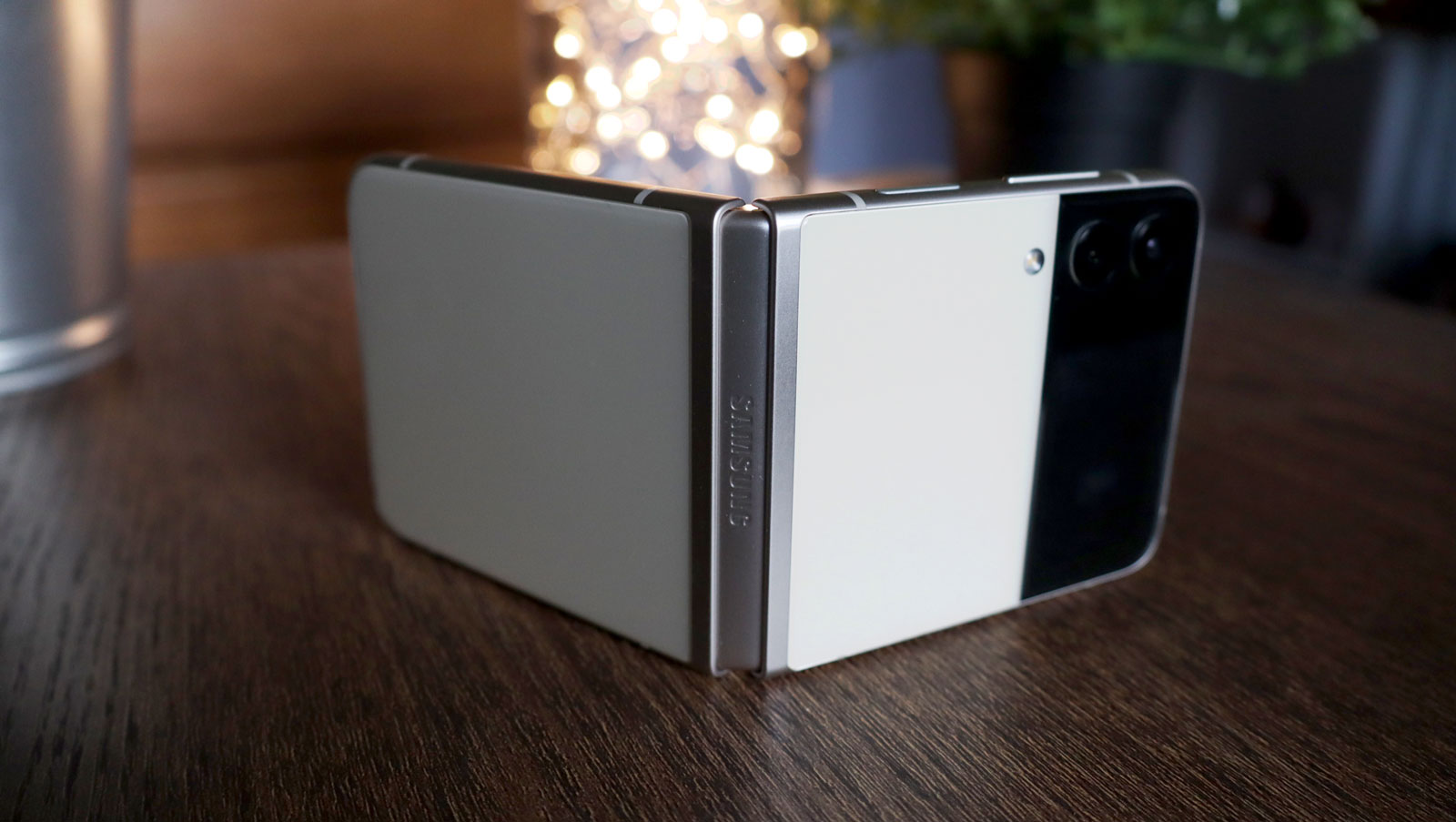
But that’s a good premise to couch my impressions of the phone: it will impress some, but still won’t be enough for others. And that comes down to the form factor. What will you pay for the ability to fold your phone in half?
I personally think it’s worth the trade-off, so long as you’re not leaning on the phone for dynamic photos, and don’t need your phone’s battery to last you longer than a day. But I also think that I, like many others, am excited for foldables to simply change how we use our phones every day. I cringe at my screen-time report knowing that it’s just me staring intently into a glass rectangle for hours per day – the Z Flip 3 at least shakes up how I’m holding, pocketing, using, and previewing via the exterior screen on my phone.
With updated specs (Snapdragon 888, 8GB RAM, 128GB storage to start) and a 1.9-inch external display, the Z Flip 3 is a better version of the original Samsung Galaxy Z Flip (which had a tiny 1.1-inch outer screen that could show a single line of text). Here’s what it’s like to use.
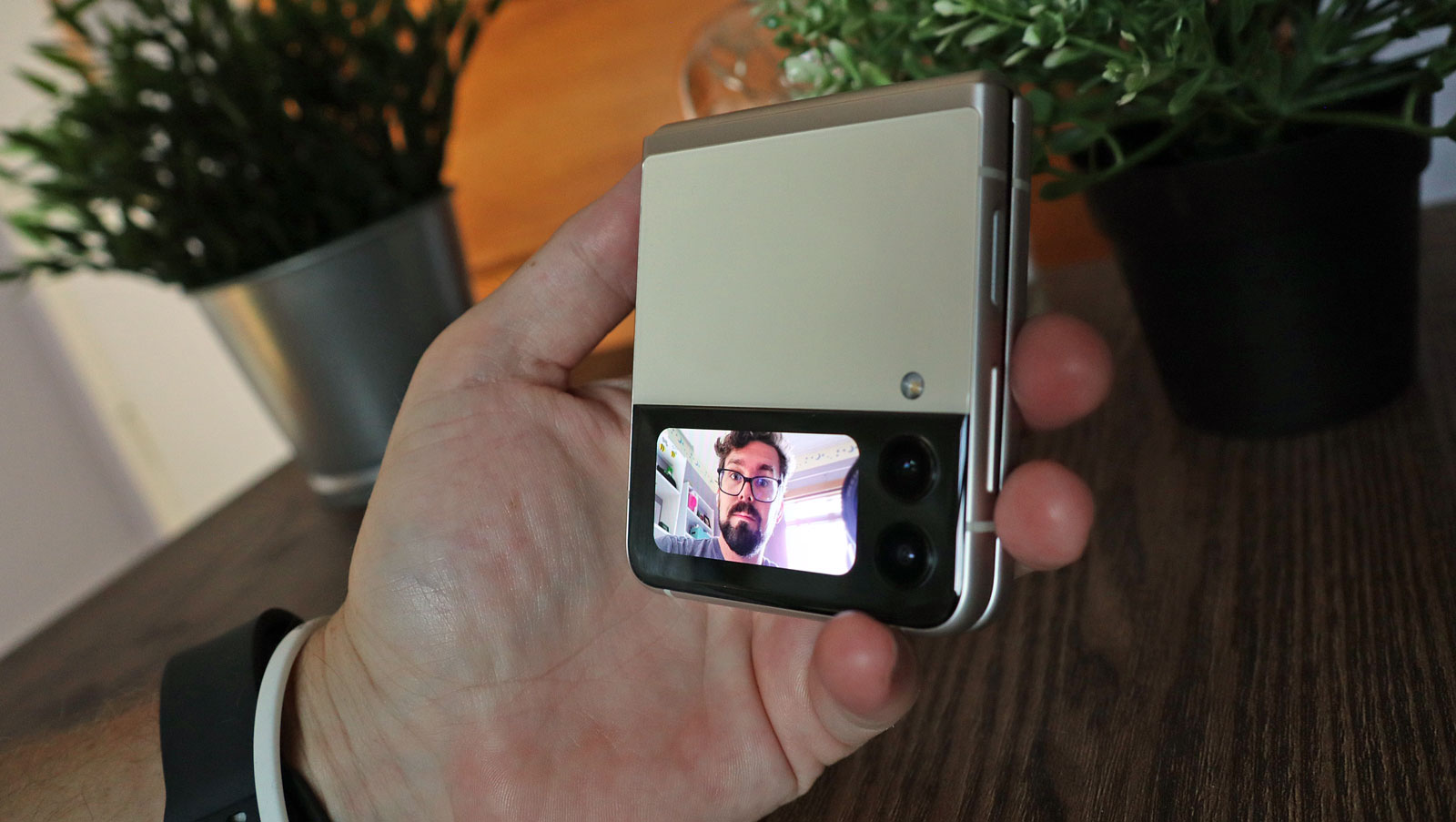
What’s it like to roll out with a flip?
I was one of the first media to see the original Motorola Razr at an event in November 2019 just before it launched, and I still appreciate its design flourishes, like the satisfying ‘snap’ when folding it close. And the 2.6-inch exterior screen is still the best among clamshell foldables (a category of just the Razr and Z Flip phones at present, to be fair), especially with the exterior screen app functionality that was expanded in the Motorola Razr 2020.
Get daily insight, inspiration and deals in your inbox
Sign up for breaking news, reviews, opinion, top tech deals, and more.
That’s still true. The Z Flip 3’s 1.9-inch outer screen is four times larger than its predecessor’s, but aside from adding more room for notifications, the app functionality is pretty limited to audio controls, weather, and a few other first-party controls – I can’t, for example, reply to a Twitter DM or Slack message. On the other hand, the screen is large enough to preview your selfies, which is great.
One of the first things anyone should do with a Z Flip 3 is something you can only do with a Samsung foldable: unfold the phone 90º and mess around with different apps, which split into top-and-bottom sections thanks to Flex Mode. Deployed this way, the Z Flip 3 looks like a makeup compact, but it’s a great way to take relaxed selfies with friends (no awkward angles required) and listen to media.
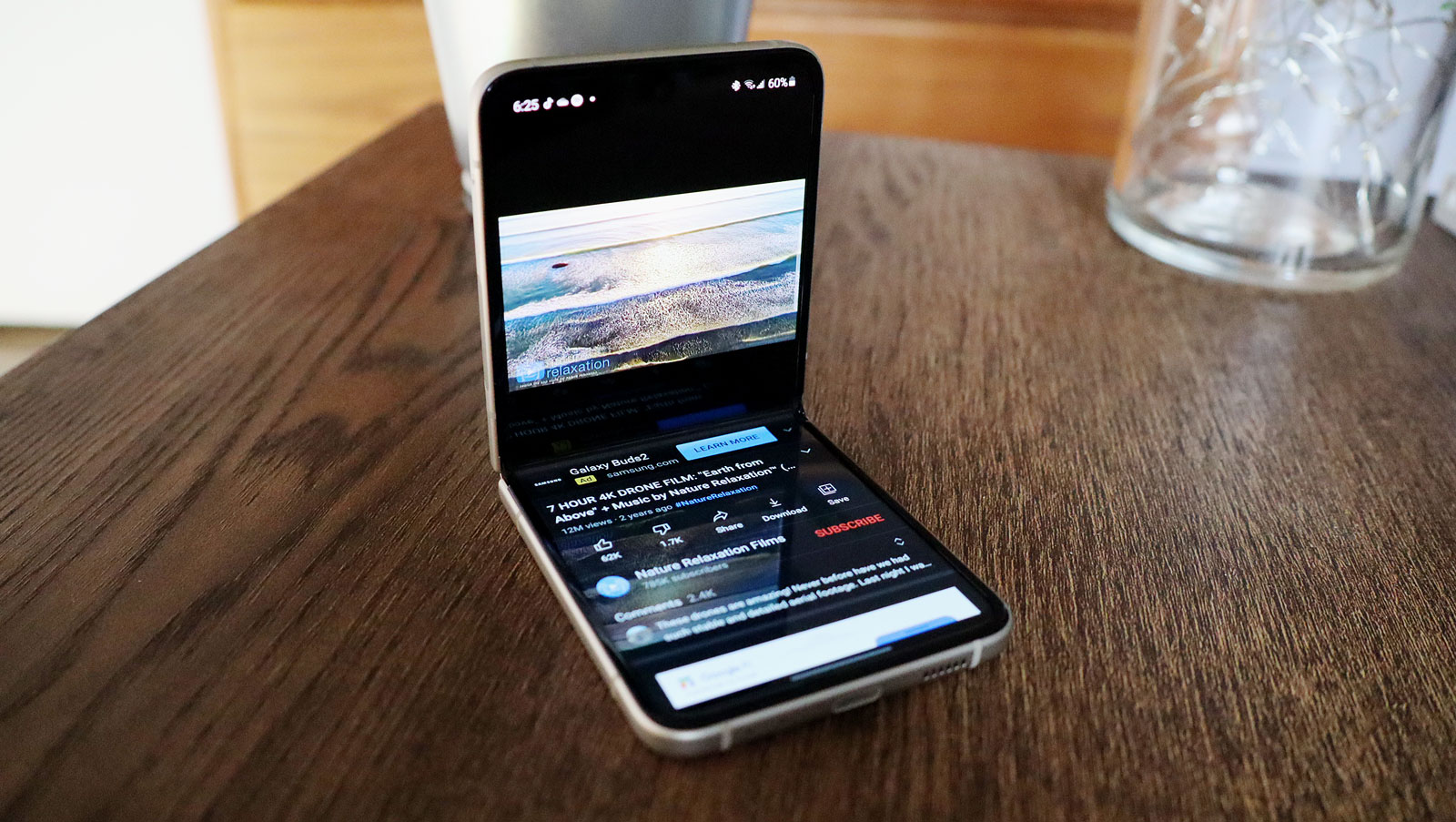
Yes, watching media this way on the top half of the 6.7-inch Full HD Plus AMOLED display doesn’t fit how videos are formatted these days (for wide, not square, screens), so the picture is going to be small with big black bars on top and bottom. If you want to watch something, you’re going to have a bad time. But if you want to listen – say, to your favorite YouTuber or Twitch stream – and don’t need constant video, it’s great to just prop the Z Flip 3 up and listen while you fold laundry or play games.
Sure, you can unfold the phone to watch video in a widescreen format, but you either have to prop it up on something like a normal candybar (flat) phone or hold it – and in the latter case, your hand might cover the bottom-firing speaker. There’s a slightly janky workaround: just bend the phone a bit until it stays upright on its side. Even though that leaves the picture a bit bent in turn, it’s at least an option.
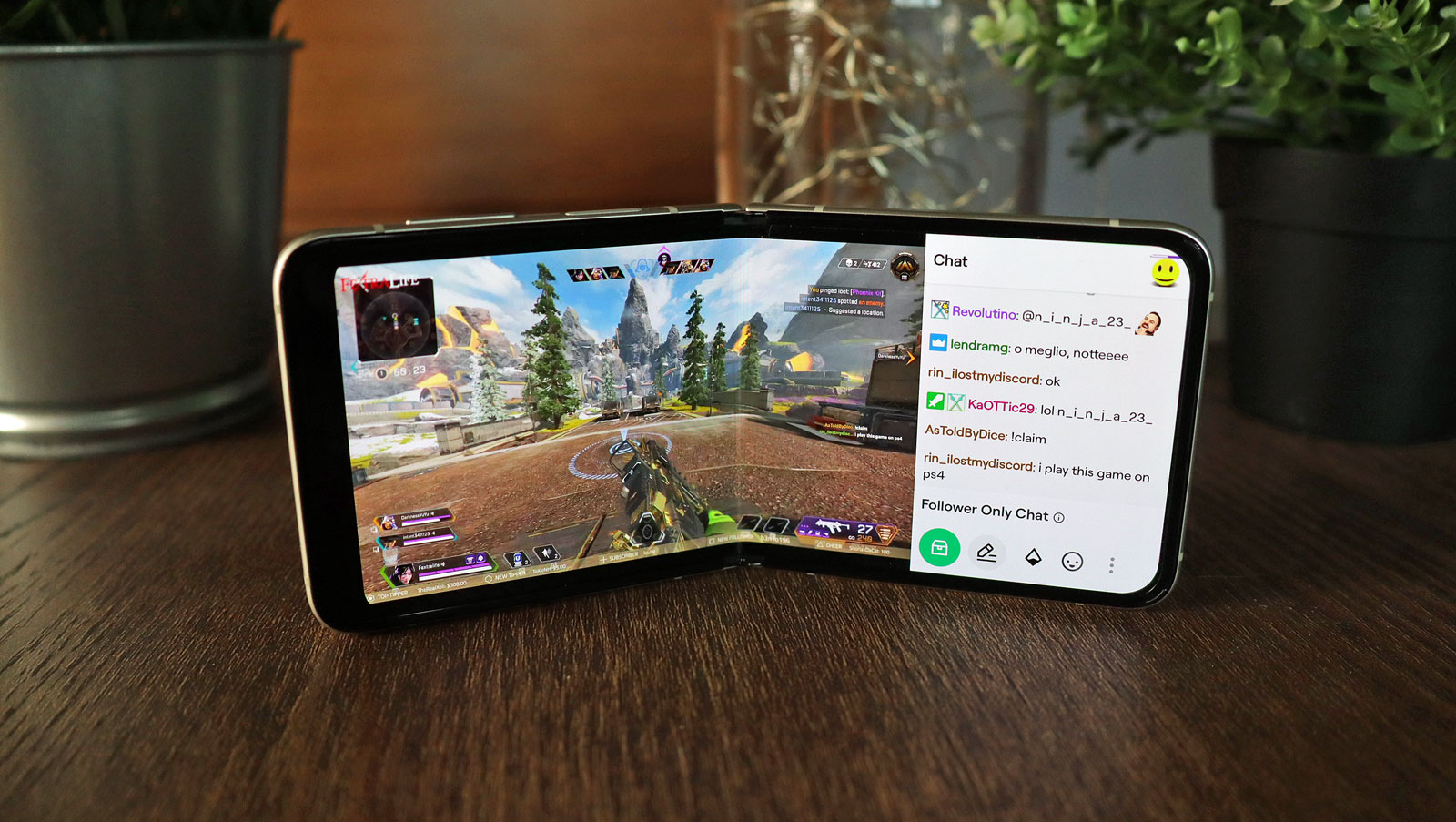
The pocketable half-size flagship phone
Being able to fold the Z Flip 3 up and slip it into a pant or bag pocket is great, full stop. While I’d hope the glass back and outer screen doesn’t get scratched up when I throw the phone in with my keys, wallet, and other things, at least I don’t have to worry about the inner display getting damaged.
This makes the Z Flip 3 a great phone to take on a workout. Whether that’s running with the phone (yes, I carry my phone in hand when jogging, and I have no defense) or toting it around the gym, I don’t have to worry as much about it as I do a ‘flat’ phone, which I have to place face-up or face-down with its display exposed.
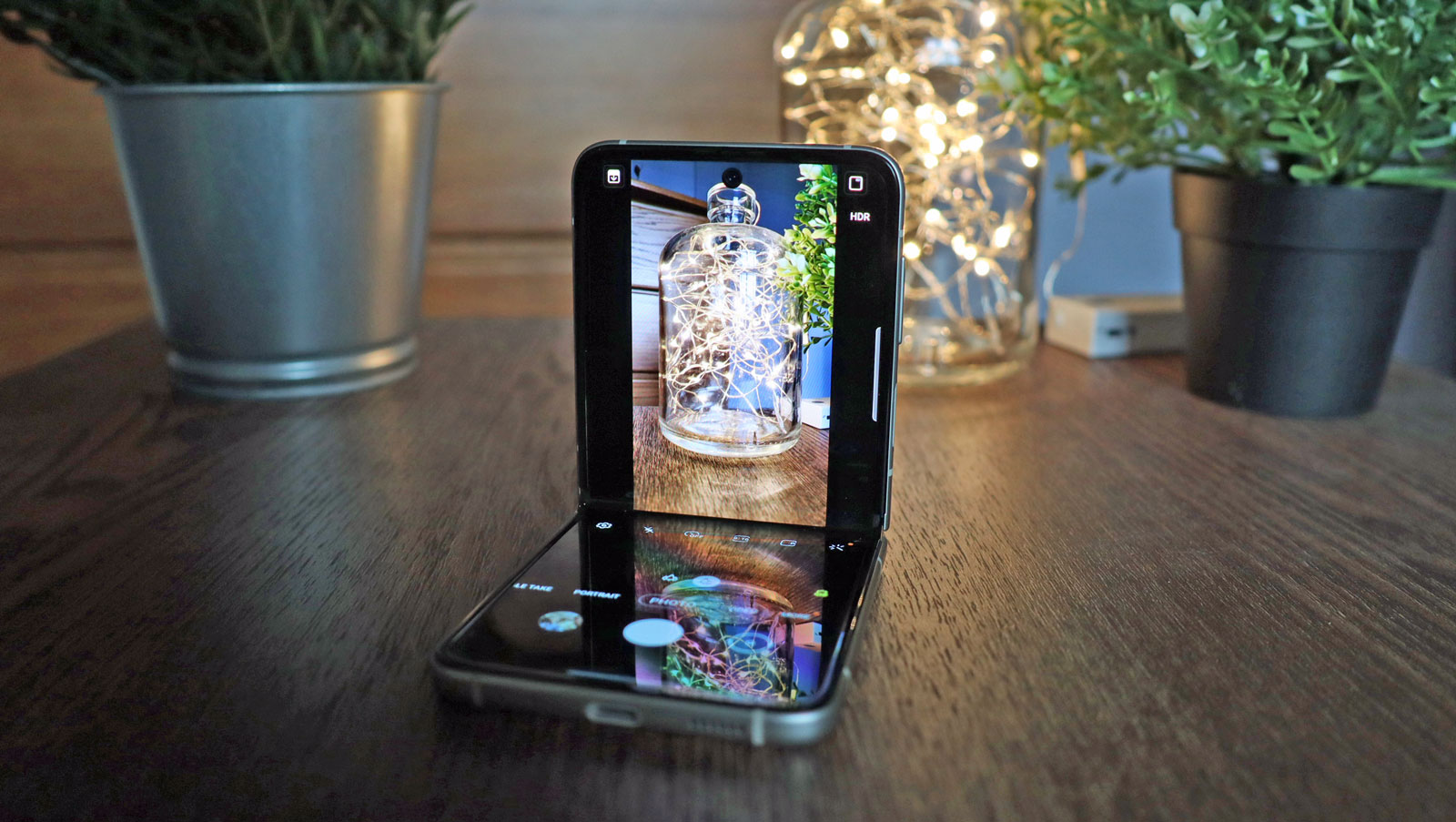
While I haven’t physically tested the Z Flip 3’s ruggedness (Samsung claims its hinge is 10% more durable than its predecessor), it is nice to know the phone has the same IPX8 water resistance as the Z Fold 3, allowing it to be submerged in hip-deep (1.5 meter) water for half an hour without coming to harm – though I’ll be sure to avoid dropping it in salt water or pool water, as recommended. The phone also isn’t dust-resistant (hence ‘IPX8’ instead of ‘IP68’ rating in other phones), as the hinge is still a vector of entry for physical particles to potentially muck up the foldable.
In other words, my first 24 hours with the Z Flip 3 has been filled with, well, pretty mundane activities: watching media, carrying the phone around, and figuring out how to fit it into my lifestyle. I’ve only taken a few photos, more to try out Flex Mode than measure the Flip 3’s photo capabilities against the other heavy hitters at its price point. I also haven’t tested the battery, which already feels as limited as the battery in its predecessors – it took just under 1.5 hours to charge 80% of the Z Flip 3’s 3,300mAh battery, and that was using a 60W charger.
In any case, there’s a lot left to discover about the Samsung Galaxy Z Flip 3, and we’re eager to give it a full review – but after 24 hours, we’re excited to see what it can teach us about using phones differently.
- Stay on top of tech news with the TechRadar newsletter
David is now a mobile reporter at Cnet. Formerly Mobile Editor, US for TechRadar, he covered phones, tablets, and wearables. He still thinks the iPhone 4 is the best-looking smartphone ever made. He's most interested in technology, gaming and culture – and where they overlap and change our lives. His current beat explores how our on-the-go existence is affected by new gadgets, carrier coverage expansions, and corporate strategy shifts.
